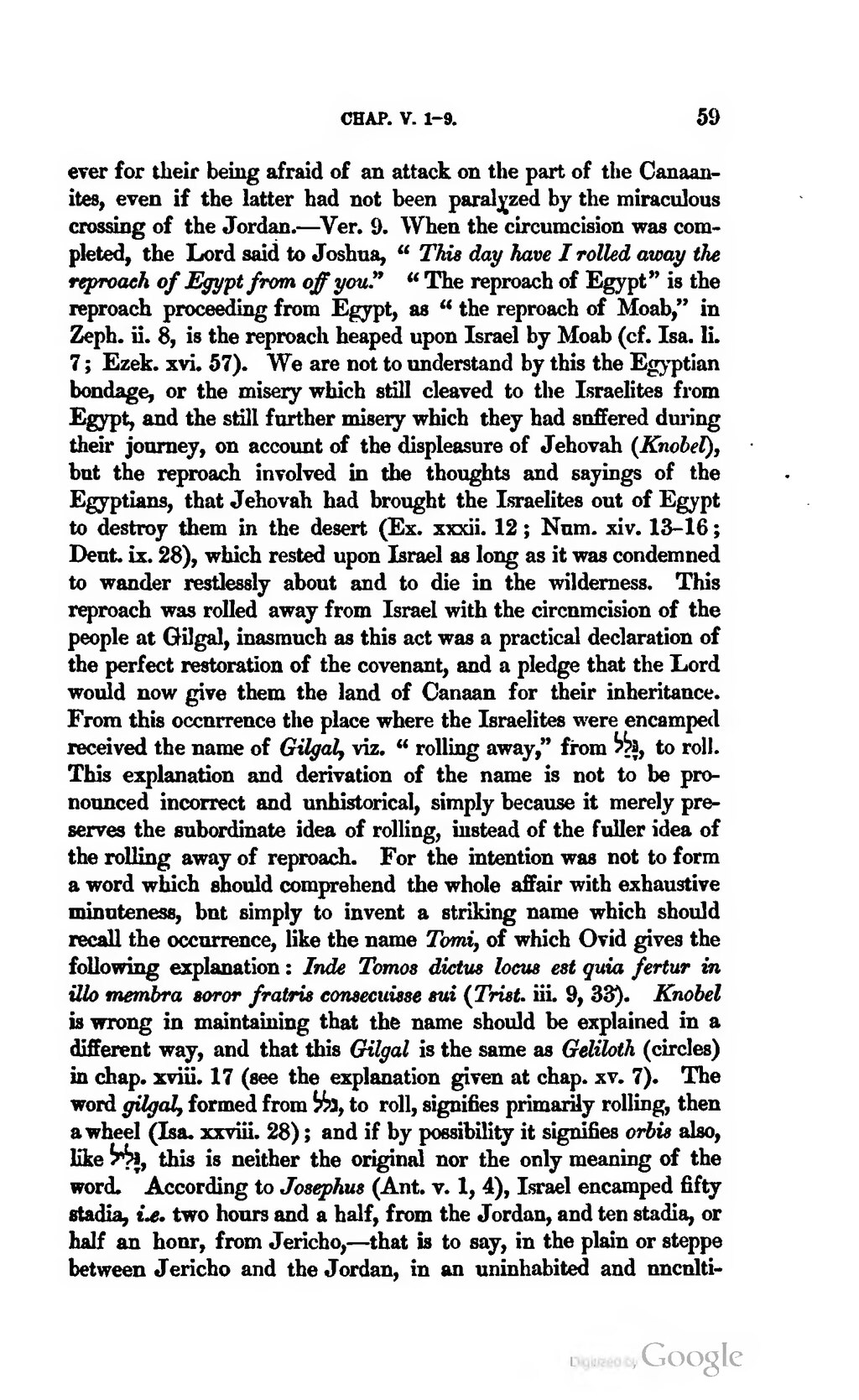for their being afraid of an attack on the part of the Canaanites, even if the latter had not been paralyzed by the miraculous crossing of the Jordan.
Verse 9
When the circumcision was completed, the Lord said to Joshua, “This day have I rolled away the reproach of Egypt from off you.” “The reproach of Egypt” is the reproach proceeding from Egypt, as “the reproach of Moab,” in Zep 2:8, is the reproach heaped upon Israel by Moab (cf. Isa 51:7; Eze 16:57). We are not to understand by this the Egyptian bondage, or the misery which still cleaved to the Israelites from Egypt, and the still further misery which they had suffered during their journey, on account of the displeasure of Jehovah (Knobel), but the reproach involved in the thoughts and sayings of the Egyptians, that Jehovah had brought the Israelites out of Egypt to destroy them in the desert (Exo 32:12; Num 14:13-16; Deu 9:28), which rested upon Israel as long as it was condemned to wander restlessly about and to die in the wilderness. This reproach was rolled away from Israel with the circumcision of the people at Gilgal, inasmuch as this act was a practical declaration of the perfect restoration of the covenant, and a pledge that the Lord would now give them the land of Canaan for their inheritance. From this occurrence the place where the Israelites were encamped received the name of Gilgal, viz., “rolling away,” from גּלל, to roll. This explanation and derivation of the name is not to be pronounced incorrect and unhistorical, simply because it merely preserves the subordinate idea of rolling, instead of the fuller idea of the rolling away of reproach. For the intention was not to form a word which should comprehend the whole affair with exhaustive minuteness, but simply to invent a striking name which should recall the occurrence, like the name Tomi, of which Ovid gives the following explanation: Inde Tomos dictus locus est quia fertur in illo membra soror fratris consecuisse sui (Trist. iii. 9, 33). Knobel is wrong in maintaining that the name should be explained in a different way, and that this Gilgal is the same as Geliloth (circles) in Jos 18:17 (see the explanation given at Jos 15:7). The word gilgal, formed from גלל, to roll, signifies primarily rolling, then a wheel (Isa 28:28); and if by possibility it signifies orbis also, like גּליל, this is neither the original nor the only meaning of the word. According to Josephus (Ant. Jos 18:1, Jos 18:4), Israel encamped fifty stadia, i.e., two hours and a half, from the Jordan, and ten stadia, or half an hour, from Jericho-that is to say, in the plain or steppe between Jericho and the Jordan, in an uninhabited and uncultivated
